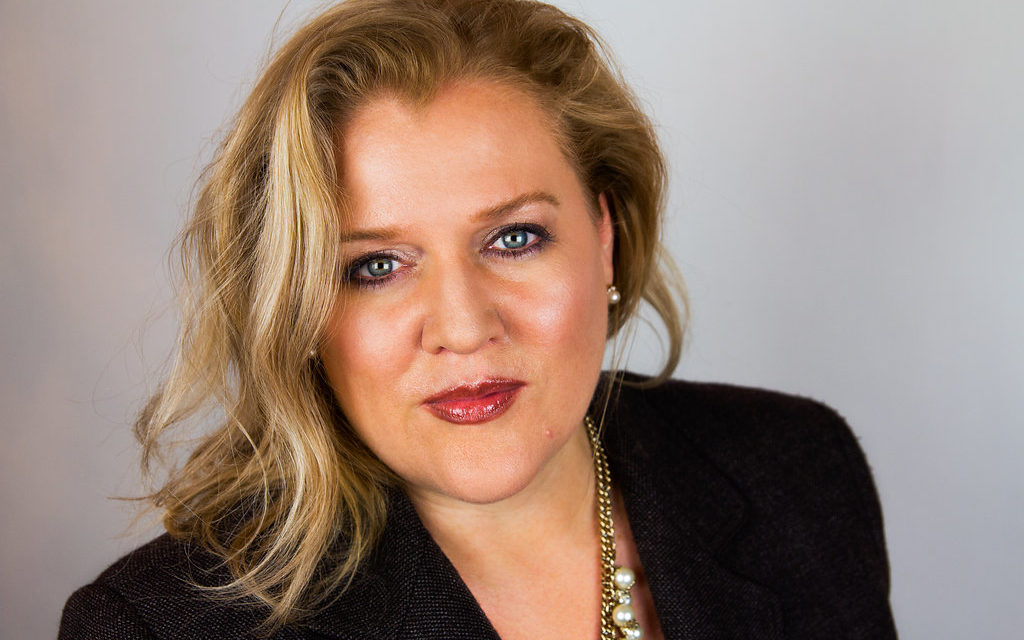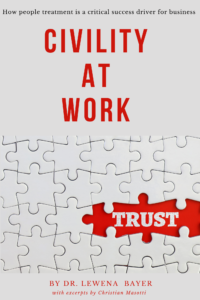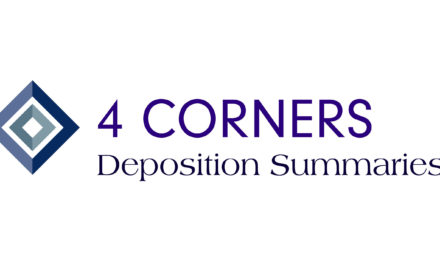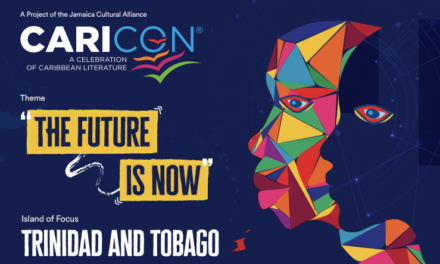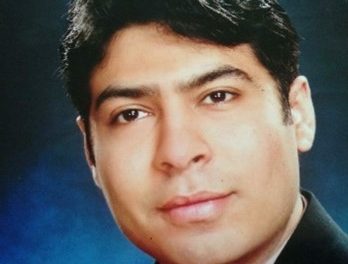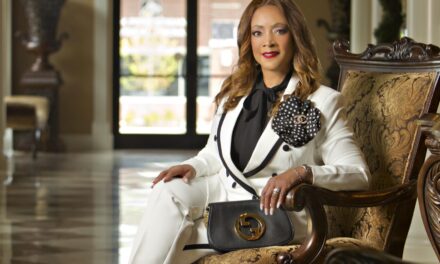| For more than 20 years, Lewena Bayer has been internationally recognized as the leading expert on civility at work. With a focus on social intelligence and culturally-competent communication, the team at Civility Experts – which includes 501 affiliates in 48 countries has supported 100’s of organizations in building better workplaces.
In addition to her role as CEO of the international civility training group Civility Experts Inc. which includes The Civility Speakers Bureau and Propriety Publishing. Lew is Chair of the International Civility Trainers’ Consortium, President of The Center for Organizational Cultural Competence, and Founder of the In Good Company Etiquette Academy Franchise Group http://www.ingoodcompanyetiquette.com and http://www.Highstyleimage.com Most recently, Lew was selected as an International Advocate for Aegis Trust, a UK based organization focused on peace education and the prevention of genocide. She is also an Education Chair for http://www.globalgoodwillambassadors.org. Recently, Dr. Bayer has been assigned the privilege of being named Ambassador of Global Knowledge Exchange and a Master Educator in Global Teachers Academy. Including 2-time, international bestseller, The 30% Solution, and the pending December release of several new books, Manufacturing Civility, Civility at Work, Golden Rule Peace and Civility Lew is a 17-time published author. Lew donates her time as Director of the National Civility Center and co-founder of the Golden Rule Civility Global Initiative, she is also a proud mentor for The Etiquette House, a member of the Advisory Board for A Civil Tongue, was a national magazine columnist for 10 years, and has contributed expert commentary to many online, print, and television publications. Lew is one of only 14 Master Civility Trainers in the world, and a distance faculty member at Georgetown University Center for Cultural Competence, a long-term facilitator at the Canadian Management Center in Toronto Canada, Instructor – Social Justice at MITT, a Master Trainer for the Canadian School of Service, a certified High Style Impression Management Professional and a Certified Culture Coach® who also holds credentials in Intercultural Communications, Essential Skills, and Occupational Language Assessment. Most recently Lew has completed the Champions of Humanity Master Peace Educator Certificate Program at the Kigali Peace School in Rwanda. Dr. Lew Bayer believes that “Civility is its own reward”. She suggests that “In choosing civility, people find their best self, and in doing so, they experience the grace, courage, generosity, humanity, and humility that civility engenders.” Jules: You are an internationally-acclaimed civility expert. Share your background. Lew: I started out in the civility training business in 1999. A colleague and I were working for a hotel chain at the time and were both exhausted and eager for change. We started the business together and immediately identified a need in the market related to social skills. Since then, I have published 16 books, traveled and teach about 200-250 training sessions a year, and continue to learn something about humankind and civility every day. Jules: How can the social architects at Civility Experts help to change our view of the world and the people in it? Lew: When you teach civility, you are teaching competency in four key skill areas that help people think differently, for example: Social Intelligence- enables people to be present, to focus and listen with TING, doing this helps you interpret the world around you and understand the people in it in new and important ways. Cultural Competence- shows us that simply knowing about culture differences or recognizing that aspects of generation, culture, gender, orientation, experience or education can be interesting, but learning if, and how, these differences make a meaningful difference in various contexts and situations is more important. Continuous Learning – supports our understanding that asking questions and being curious about the world is critical, we need to be open minded and withhold judgment, suspend bias ongoing, we need to be change ready to thrive in the new world of work. And lastly, Systems Thinking teaches us that we are all connected. Everything we say or do impacts the systems we live and work in. You cannot NOT impact others. This understanding also helps us see that there is a lot we can control and that even when we cannot control our environment or situations or incidents we can control how we react. We are all citizens of the world, we are in this together. Jules: What would the world look like where civility was a non-negotiable point of character? Lew: Oh my gosh, this is my dream. In a world where civility is a non-negotiable point of character, people would be honest and kind, humble and generous. We would each see the value in others, we would honor and respect each other, people would be treated equally, and we would all give of ourselves with no expectation of return. Jules: Tell us about the civility training and assessment for small + large organizations. Lew: There are many excellent assessments. We use several proprietary assessments such as the Social Acuity Survey, the Civility Compass and the Civility Behavior Continuum. These tools were designed by our expert team to measure skills gaps related to the four key skills that underpin competency in civility Jules: Is civility training perfect for workplace culture problems? Lew: I don’t know about perfect but with 25+ years experience in the field we have seen measurable impact from civility training time and time again. We believe “workplace culture” is the day-to-day experience of the people living in the workplace and so when you change how people behave and how they treat each other, when you mandate and expect, encourage and reward positive people treatment- you can in fact change workplace culture. Jules: Take us through the process. Lew: Typically, we conduct a formal assessment, use our proprietary tools, do site visits, interviews, observations, etc. and then we devise a customized training plan, engage the on-site leadership, devise an evaluation strategy, deliver the training, and then evaluate to measure the impacts of the training. Jules: You travel, speak, and train at approximately 250 events a year. What are the themes that you share with audiences? Lew:” Every presentation I do has something to do with civility. Topics include the four skills that underpin the ability to be civil; social intelligence, cultural competence, systems thinking, and continuous learning. I also speak often on the business case for civility, how to do a civility initiative, and the benefits, costs, and consequences of civility in our communities and homes, and schools, as well as online and in public forums. Jules: What are the underpinnings of civility? Lew: Cultural competence is one of the four key skills that underpin the ability to be civil so we do address aspects of diversity and inclusion. I can say that choosing civility obligates individuals to honor and value all people equally and so when you have a “people-first” approach, aspects of inclusion flow naturally and less debate on the topic is necessary. To be included is about not judging others, about accepting others without necessarily knowing or understanding everything about them. Civility training teaches courage to listen and to be curious. Civility fosters respect and trust. Jules: You have written many books. Share your recent book, Civility at Work, and your mission. Lew: One of the components of our definition of civility is to “ease the experience of others”, this was the mission and focus of Civility at Work. I often describe our team as “social architects”- we strive to build better workplaces by teaching people to think differently about how they interact with others. Civility eases day-to-day interactions, communication, and challenges. Civility reduces stress and fosters wellness at work. It has been shown to increase retention, engagement, and performance metrics. The book was written to share best practices for building better workplaces with organizations all over the world.
Jules: Tell us about the workshops for the fall. We have over 20 public offerings this fall all across the country and over a dozen courses including certification offered online. Lew: We offer Social IQ, Executive Finishing School, Civility at Work for HR and business professionals, and through our In Good Company Division we offer many social competence courses for children, youth, and teens as well. Jules: What are the benefits of civility training? Lew: Too many to list here but some examples include increases in retention, engagement, morale, self-direction, health and happiness at work, and positive workplace culture change. We are also seeing wider impacts to social influence e.g., in the communities where people from civility -focused companies work and increased in social capital- that is positive regard for the organizations who engage in civility best practice and incorporate it into their policies and processes. Jules: What is next? Lew: We are still catching up with rescheduled training and speaking post-Covid, a lot of bookings over the past 2 years have been moved to 2022 -2025. And we are working on a new children’s civility App. And of course, there is a new book (on Social Intelligence) in the works as well. Facebook – https://www.facebook.com/lewbayer and https://www.facebook.com/civilityexperts Instagram – https://www.instagram.com/civilityexperts/ LinkedIn – https://www.linkedin.com/in/dr-lewena-b-234b7a11/ Twitter – @civilityexperts
|
